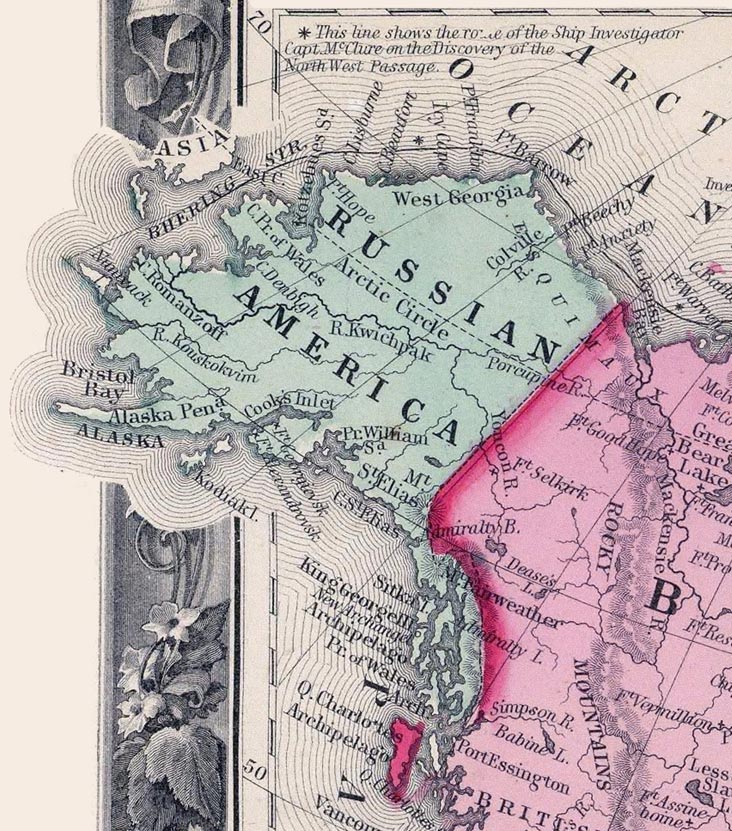Now, some of the largest contiguous empires in world history were the Russian Empire, and the Soviet Union (well, they claimed to be anti-imperialist, but I am going to call them as such for the sake of this thread). I like reading about Russian history, and since I don't participate in any other forum, I thought it'd be interesting to discuss it here!!
The Russian Empire was proclaimed in 1721, and lasted, in one form or another, until 1917 with the February Revolution. The territory of Russia expanded greatly in a span of 2 centuries, incorporating territory from the Central Asian Khanates, China, Sweden, the Ottoman Empire and Persia, amongst others. At one point it even spanned three continents, from Eastern Europe to North America!! However, it is important to note that there was never a period in time where all of the territory of the Russian Empire was together at once: after the sale of Alaska 1867, they continued to make territorial gains in Central Asia and the South Caucasus.


However, that was not all. The turbulent times of the latter-day Russian Empire meant that certain territories were lost, for example South Sakhalin was given to Japan, in which it became known as the Karafuto Prefecture. The collapse of the Russian empire also resulted in enormous territorial losses: Finland, Estonia, Latvia and Lithuania became indpendent, entirely from Russian territory. Poland also became independent, and much of its land came from the former Russian Empire. The newly-independent Turkey also gained territory with the Treaty of Kars, and Romania gained Bessarabia.


On the other hand, with World War II also came territorial gains for the Soviet Union. Estonia, Latvia and Lithuania were completely re-incorporated into the Soviet Union. Poland, Romania, Czechoslovakia, Germany and Finland all made territorial concessions in Eastern Europe too. In terms of Asia, the Soviet Union also took the once-disputed Kuril islands, along with South Sakhalin. Tuva, which become a nominally independent country after the collapse of the Qing Dynasty in China, was also incorporated into the Soviet Union during the Second World War.



So, it's interesting to see which areas were part of one, but not the other. I think if I create a list, it would end up like this:
Russian Empire exclusive:
- Russian America (Alaska)
- South Caucasus territory now part of Turky after Treaty of Kars
- Most of Finland
- Polish territory that was not re-annexed by the Soviet Union
- Kuril Islands (I'm not sure if the Russian Empire ever had complete control over the islands)
- Tuva
- Kaliningrad Oblast (former German territory)
- Areas taken from Poland, Romania and Czechoslovakia that were part of the Austro-Hungarian Empire
Last edited by VGPolyglot - on 03 November 2017



































































